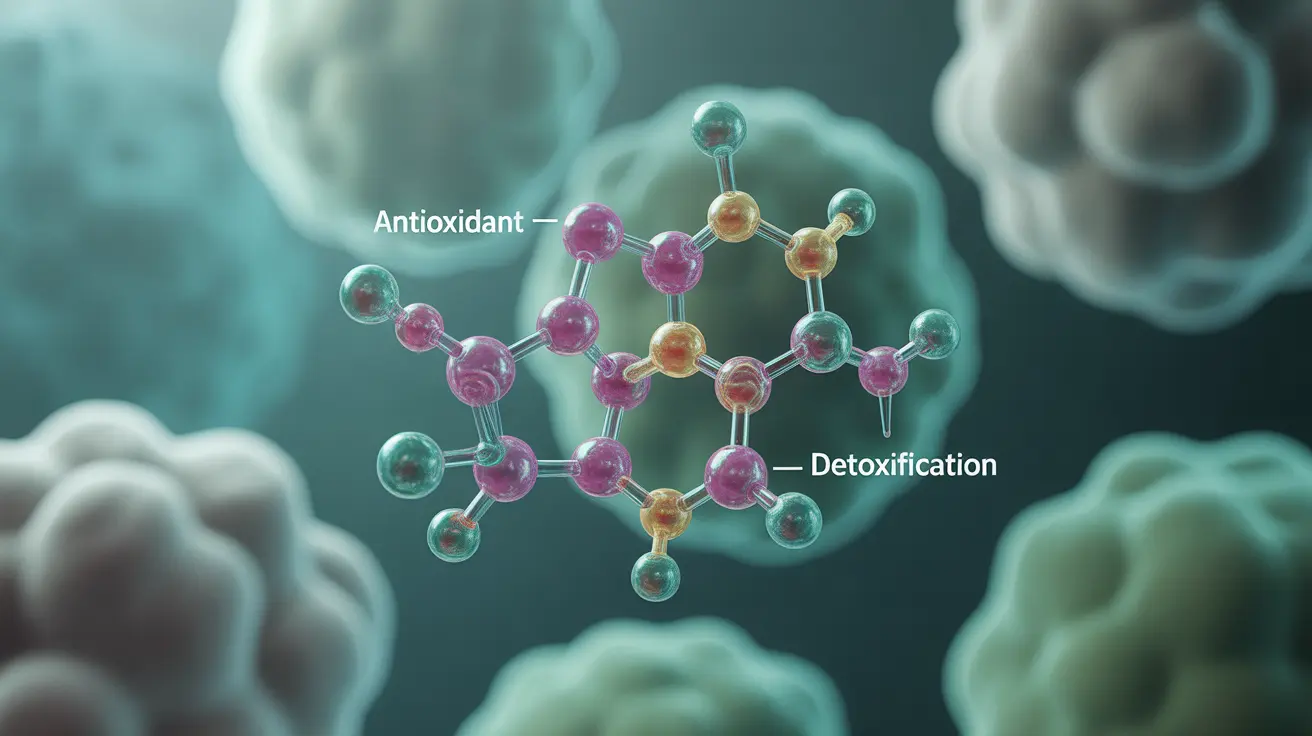Glutathione, often called the body's master antioxidant, plays a crucial role in maintaining overall health and wellness. This powerful compound, naturally produced by the liver, has gained significant attention for its diverse therapeutic applications and potential health benefits.
Understanding how glutathione works and its various applications can help you make informed decisions about supplementation and lifestyle changes to optimize your body's natural glutathione levels.
What Is Glutathione and How Does It Work?
Glutathione is a tripeptide composed of three amino acids: cysteine, glutamic acid, and glycine. As an antioxidant, it helps protect cells from oxidative stress and supports various vital bodily functions, including immune system response and cellular repair.
Key Health Benefits of Glutathione
Antioxidant Protection
As a powerful antioxidant, glutathione helps neutralize harmful free radicals and reduces oxidative stress throughout the body. This protection is essential for preventing cellular damage and supporting overall health.
Immune System Support
Glutathione plays a vital role in supporting immune function by helping maintain the proper functioning of white blood cells, particularly T-cells and natural killer cells.
Detoxification Support
The liver relies on glutathione for its detoxification processes. This antioxidant helps remove harmful substances and supports the body's natural cleansing mechanisms.
Skin Health and Glutathione
Glutathione has gained popularity in skincare for its potential benefits in addressing various skin concerns. It may help reduce hyperpigmentation and support overall skin health through its antioxidant properties.
Effects on Skin Tone
Some studies suggest that glutathione may help regulate melanin production, potentially leading to more even skin tone. However, results can vary significantly among individuals.
Methods to Increase Glutathione Levels
Natural Sources
Several foods can help boost glutathione levels naturally:
- Sulfur-rich vegetables like broccoli and cauliflower
- Allium vegetables such as garlic and onions
- Lean proteins
- Eggs
- Nuts and seeds
Supplementation Options
Glutathione supplements are available in various forms, including:
- Oral capsules and tablets
- Liposomal preparations
- Injectable formulations (medical supervision required)
- Topical applications
Safety Considerations
While glutathione is generally considered safe, it's essential to understand potential risks and proper usage. Always consult with a healthcare provider before starting any supplementation regimen, especially if you have underlying health conditions.
Frequently Asked Questions
What are the main health benefits of glutathione supplementation?
Glutathione supplementation may offer several benefits, including enhanced antioxidant protection, immune system support, improved detoxification, and potential skin health benefits. It can also help protect cells from oxidative stress and support liver function.
How does glutathione help improve skin conditions like hyperpigmentation and aging?
Glutathione may help improve skin conditions by regulating melanin production and providing antioxidant protection against free radical damage. It can potentially reduce hyperpigmentation and support overall skin health through its antioxidant properties.
Can glutathione support liver health and protect against damage from overdoses like acetaminophen?
Yes, glutathione plays a crucial role in liver health and detoxification. It can help protect against certain types of liver damage, including acetaminophen overdose, by supporting the liver's natural detoxification processes.
What is the best way to increase glutathione levels in the body—oral supplements or topical treatments?
The most effective method varies by individual, but a combination approach often works best. This includes consuming glutathione-rich foods, taking high-quality supplements (particularly liposomal forms), and maintaining healthy lifestyle habits that support natural glutathione production.
Are there any risks or side effects associated with taking glutathione supplements?
While generally safe, some people may experience side effects such as abdominal cramps, bloating, or allergic reactions. Long-term safety data is limited, and certain forms of supplementation may require medical supervision. Always consult with a healthcare provider before starting supplementation.




